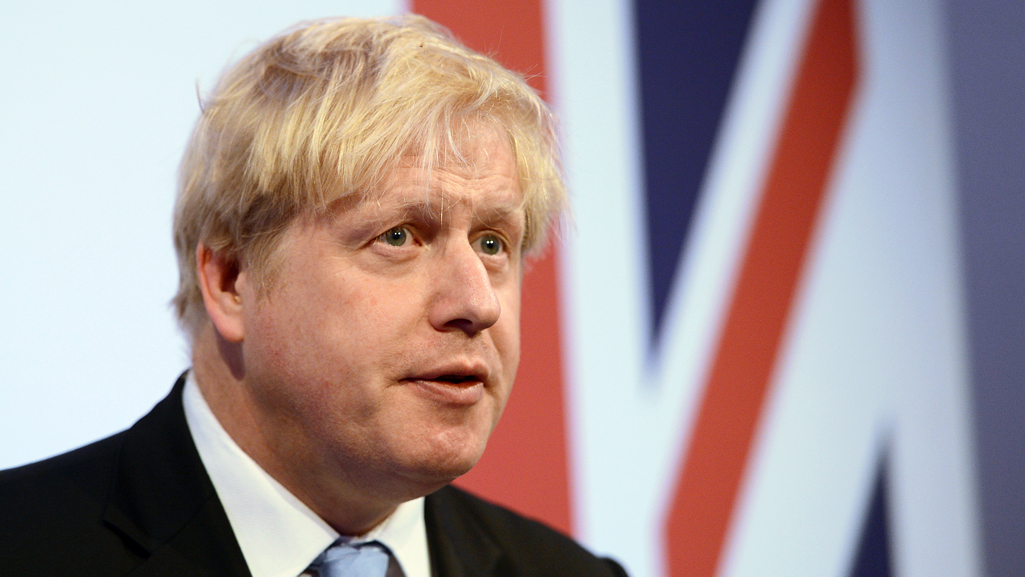Obama backs Cameron’s EU reform plans
President Barack Obama says David Cameron’s attempt to “fix” Britain’s relationship with the EU before holding a referendum “makes some sense to me”.
Speaking alongside the prime minister at the White House, President Obama said British membership of the European Union was a matter for the British people.
He added: “David’s basic point – that you probably want to see if you can fix what is broken in a very important relationship before you break it off – makes some sense to me.”
Before his meeting with the US president in Washington, Mr Cameron hit back at two senior ministers after they signalled they would vote for Britain to leave the EU if a referendum was held immediately.
He said the issue was “hypothetical” and insisted he was determined to renegotiate Britain’s terms of membership.
‘Throwing in the towel’
Mr Cameron added: “You should not give up before a negotiation has started. It seems to be an extraordinary way to go about things … the idea of throwing in the towel before the negotiations have even started I think is a very, very strange opinion.”
The comments came after Defence Secretary Philip Hammond and Education Secretary Michael Gove publicly declared that they would vote “no” if the present relationship was put to a vote.
Both stressed that they supported Mr Cameron’s bid to renegotiate and stage a referendum before 2018 if the Conservatives win the next general election.
Mr Cameron is in the US to higlight the benefits for Britain of a free trade deal between the EU and US, among other things. The prime minister argues that an agreement could be worth up to £10bn a year to the economy.
‘Hypothetical’
When asked about the remarks by Mr Gove and Mr Hammond as he embarked on a three-day trip to the US, Mr Cameron said: “There isn’t going to be a referendum tomorrow so it is a hypothetical question.
“What matters is making sure that we do everything we can to reform the EU, make it more flexible, more open, more competitive and improve Britain’s relations with the EU, change those relations so that when we have the referendum before the end of 2017 we give the British public a real choice, a proper choice.”
In, out, shake it all about
Michael Gove and Philip Hammond would vote no - but what about the general public?
In an (unscientific) Channel 4 News poll on Facebook, 75 per cent of you voted to stay in the union (out of 80 responses). That's much higher than the wider general public - in the most recent YouGov poll on the topic in April, 45 per cent of Britons wanted to leave the European Union compared to 35 per cent who wanted the country to stay in.
However - it's all quite a lot more complicated than that, as this commentary from YouGov's Peter Kellner suggests: "These results bear an uncanny resemblance to what happened at the previous referendum on Europe, in 1975. Eight months beforehand, most voters said they wanted Britain to withdraw from the Common Market (as it then was). Then Harold Wilson, Labour’s Prime Minister, did a deal that he claimed (with not a little exaggeration) amounted to a substantial improvement in Britain’s relations with Brussels. On this basis, he recommended staying ‘in Europe’, and secured a two-to-one majority in the referendum."
What do you think? Read more from Peter Kellner here, and get in touch on Facebook or Twitter here.
The Tory leader also defended the free vote granted to backbenchers on an amendment to the Queen’s Speech, which laid out the coalition’s legislative programme last week. The amendment criticises the absence of a referendum bill in the speech, meaning that any plans will not be legally binding.
Critics want Mr Cameron to be legally tied to holding a referendum on Europe if he wins the next election. Up to 100 Conservatives are expected to vote in favour of the amendment this week, although Labour and Liberal Democrat opposition means it is certain to fail.
“I think it is a very sensible approach,” Mr Cameron told reporters. “Coalition does throw up different circumstances. I think it is a very sensible approach to say ‘Well, it wouldn’t be right for ministers to vote for an amendment to their own Queen’s Speech, so it makes sense for ministers to abstain’.
“I think reading some of the headlines over the weekend, I think that people are getting slightly over-excited.”

London Mayor Boris Johnson offered “full support” for the PM’s strategy, but said he wanted to see “legislation now to make sure that referendum goes ahead”.
In his Daily Telegraph column, Mr Johnson wrote that the EU was “no longer of key importance to the destiny of this country” as it focused increasingly on making the eurozone work.
But Mr Johnson he said that while leaving the EU would end one debate, the UK would then would have to recognise that “most of our problems are not caused by ‘Bwussels’, but by chronic British short-termism”.
-
Latest news
-
Laughing Boy: New play tells the tragic tale of Connor Sparrowhawk5m

-
Sewage warning system allows some of worst test results to be left off rating system, analysis shows3m

-
Post Office inquiry: Former CEO didn’t like word “bugs” to refer to faulty IT system4m

-
Israeli soldier speaks out on war in Gaza12m

-
PM’s defence spending boost should be ‘celebrated’, says former Armed Forces Minister4m

-




